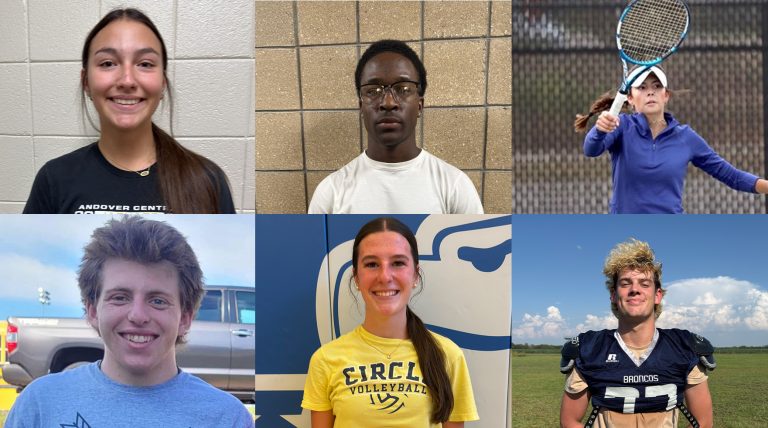Nikole Babb
nbabb@cherryroad.com
Driving 12 hours to collect turkey feathers seems like a daunting task. For two men from the Zuni Tribe, also known as the Ashiwi, it’s a routine trip that will pay out spiritual dividends for their entire community.
The Kansas One Shot Turkey Hunt, (KOSTH), a nonprofit organization based out of El Dorado, brings dozens of people into the oil town each year. Those in attendance are hand selected hunters of youth and adult age, all gunning for the biggest turkey they can hunt. Among them, dozens of volunteers are running the show from field guides, landowners, lunch servants, raffle donors and more – there are many stories waiting to be told among the group.
One particular story stood out during the short 3-day event; the story of two men from the Zuni Tribe belonging to the New Mexico area, who also known their community as Ashiwi. Stafford Chimoni and Matthew Neha, two friends who are members on the Zuni Tribe Reservation, took the long drive to El Dorado from New Mexico to collect the turkey feathers that otherwise wouldn’t be used after KOSTH hunters cleaned their game.
The team from the Kansas Governor’s One Shot Turkey Hunt had historically communicated with the Zuni Tribe to invite members each year to gather the feathers, but over the years and organizational change, communication had been lost. Once the Kansas One Shot Turkey Hunt had been founded, communication was organized to invite them once again.
The feathers that were taken, which were by the hundreds, will be used in future spiritual ceremonies, religious offerings to Mother Earth and to construct headwear for Zuni Tribe members. In addition, the feathers will be assembled onto prayer sticks for the members to use during prayer, which they do several times a day, for about 15 minutes at a time, says Chimoni.
It isn’t just turkey feathers they use for these purposes. Zuni Tribe members use a myriad of feathers – as long as they come from already dead animals that were hunted or feathers that have fallen naturally from molting or other reasons. Among those feathers used are from birds like woodpeckers, bluejays, other songbirds but primarily turkey and eagle feathers. The feathers are used year-round and are always in demand on the reservation.
The Zuni Tribe people believe that they are descendants of the Ancestral Pueblo people, also known as the Anasazi.
“People say they are no longer here – but we are here,” said Chimoni.
Their origin story tells the tale of the Anasazi people emerging from the underworld, or underground, and used to be have webbed feet and tails. They emerged by planting corn stalks and climbing the stalks until they were able to settle in the area they are now. After emerging, one member cut the webs of their feet and hands to free their fingers while also removing their tails by cutting them off.
The Zuni Tribe main reservation is made up of 450,000 acres in western New Mexico near Albuquerque. The tribe also has land near Catron County in New Mexico, and Apache County in Arizona. Visitors from across the globe and country visit the reservation to witness the Zuni Tribe ceremonial traditions such as the harvest celebration near late fall. The tribe is also unique for visitors as they speak a native language that is commonly known and used throughout the reservation.
Chimoni and Neha departed El Dorado to collect feathers from their stop, the Iowa Tribe in northern Kansas before returning to New Mexico. There they gathered eagle feathers for higher spiritual usage.




